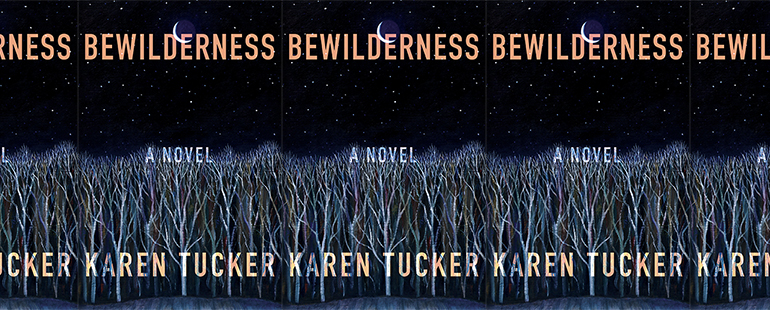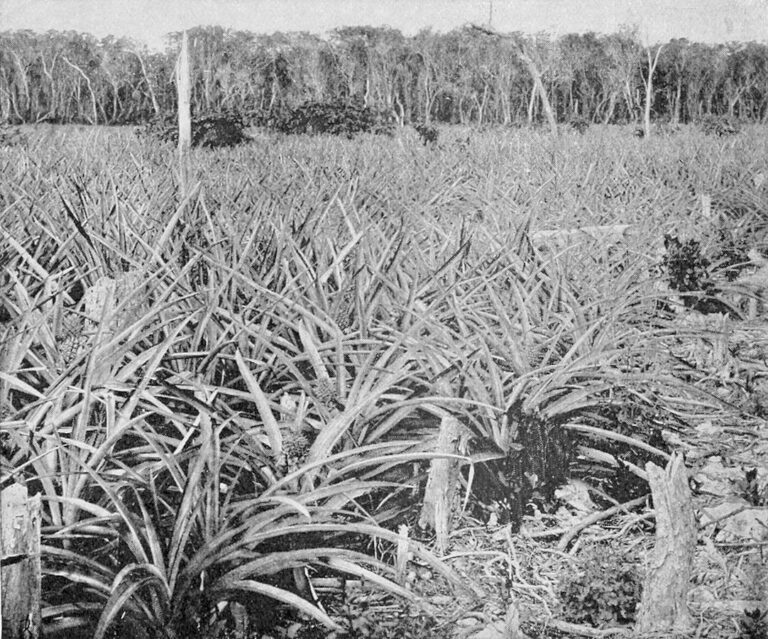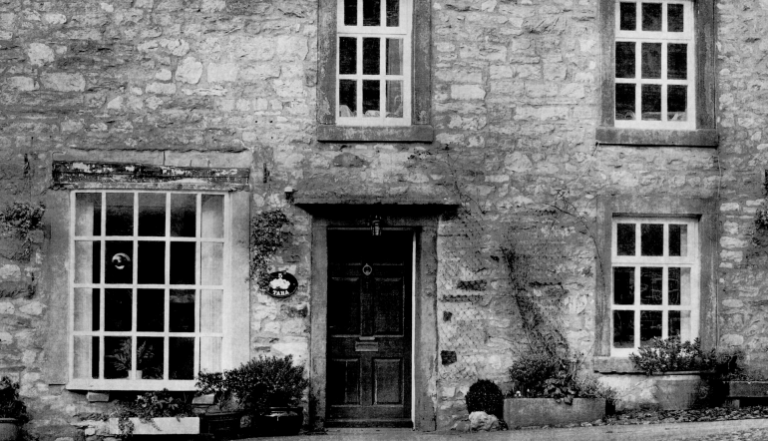The Heartbreak of Bewilderness

By the time I was born, in the early nineties, my uncle was addicted to heroin. My uncle’s addiction was “explainable”—he was “Central California trailer park poor,” and had “a bad home life”—but we treated his addiction as a shameful thing to be kept hidden. The opioid epidemic wasn’t something that had truly hit my coastal California hometown yet, but as 2000 dawned, I started hearing more and more news of prescription pill misuse, and of the ruined lives, overdoses, and fatalities the drugs caused.
I knew this heartbreak. My uncle often promised to stop using, and I believed him every time—until I hit sixteen and finally learned that he was making a promise he was incapable of fulfilling. I didn’t know how to love someone who was killing himself in this way. Eventually, my uncle died, not of an overdose as I’d feared, but of complications from decades of drug misuse. I miss him all the time.
I’m drawn to stories about people with substance use disorder: I find my uncle in them, and being in like company salves my hurt. Karen Tucker’s debut novel Bewilderness, out today, made my hurt feel as raw as it did when my uncle died eight years ago, and at times the story hurt so much I had to set the book down to catch my breath. Bewilderness vividly captures the opioid epidemic that has exploded across the nation since the early 2000s, and it especially devastates in its hopeless-seeming outset: there’s the promise that something worse will happen, that the drugs will, indeed, win. Tucker’s ruthlessness, however, reinforces the humanity of people with substance use disorder and demonstrates how wrong blaming individuals for their illness is. In the end, blame will not save you from a broken heart.
Set in a North Carolina mountain town, Bewilderness feels like an elongated share in a 12-step meeting. Anklewood is the epitome of a decimated small town: it has been stripped of its primary employer, leaving its citizens dangling from the poverty line; downtown there’s “E-Z Title Pawn and Payday Loans” and a “string of boarded-up buildings.” The narrator, Irene, opens her story on her last night with her best friend, Luce, who is moving to Florida the next morning with her boyfriend, Wilky Rowland. The trio is on the cusp of taking their one-year tag in Narcotics Anonymous. Then Wilky dies of an overdose, catching Irene and Luce by surprise; his death sets in motion their own relapses. As Irene recounts her friendship with Luce and their struggle with addiction, she expresses such fierce love for her it’s nearly romantic. “I pictured the two of us somewhere up ahead in our future, sitting at our kitchen table, maybe eating cake with our fingers and drinking huge mugs of hot sugary coffee and laughing about all the stuff we’d gone through since we first met each other,” Irene says, despite knowing Luce was leaving her for Florida. While Wilky’s fatal overdose saves Irene from losing her, it also underscores that she could be dead, too. This threat looms, and Irene’s nostalgic tone sets the reader on edge, the only place a person who loves someone with a drug addiction can be.
My uncle’s addiction never eclipsed my love for him. He made me feel special in a way no one else did, not just listening to my stories but asking me to tell more. Then it was his turn: he’d tell me wildly embellished stories that made me cry with laughter. One day, he promised again and again, we’ll write a book together. Luce is this person for Irene—and, importantly, Luce is all Irene has after her dad dies of an illness and her mom abandons her. By placing Irene as the narrator, Tucker uses Irene’s singular focus to create empathy for Luce, short-circuiting the tendency to either pity or vilify someone with substance use disorder. “My favorite memories of Luce,” Irene says: “The way she’d help out if she saw you were slammed, refilling iced teas and coffees and taking dessert orders . . . How if a customer gave you a hard time, she’d walk over and pretend she was the shift supervisor and tell them if they said one more wrong word, they’d be 86ed.” From their friendship, Irene experiences a better high than that available from drugs. “The idea of being home again, sitting with Luce on the couch, watching one of our shows and eating ice cream sundaes made me feel better than anything I could have loaded into a needle,” she says, though her wistful tone promises that, as she yearns for those quotidian moments, it is already too late.
The first time Luce and Irene use together—Irene’s first time—Irene masks her confusion when Luce pops open a tin of breath mints filled with “a dozen or so 30s. Carolina blue with a sturdy little M stamped on top.” She accepts the pills Luce seems to tenderly give her. “They really did look about as harmless as breath mints, and yet even I knew I was at the edge of a strange, enchanted forest.” Both Luce and Irene develop addictions and start hustling so they can score, before eventually becoming sober. When Luce has an asthma attack after learning that Wilky didn’t make it, the EMTs give her “K,” ketamine hydrochloride, which technically resets her sobriety date. Soon, Luce starts using again, and Irene does as well, ostensibly to save her. Shortly after, their “dgirl” helps them shoot up for the first time. She does Luce first. “Right when I thought we might be getting off easy, her head bobbed a little and her eyes rolled back in their sockets,” Irene says, then Luce says “fuck,” “the word pooling out like syrup.”
Wilky’s mother embodies another side of loving someone with drug addiction: the desire to blame this addiction on another person. “You’re telling me you didn’t get my son back into drugs, you didn’t get him kicked out of the army, you didn’t give him those goddman blue pills they found in his jacket?” Mrs. Rowland demands, “with wild electric eyes,” of Irene at her son’s memorial, which Irene and Luce attend uninvited. “You druggie garbage,” she calls Luce. “You worthless trash.” Mrs. Rowland’s insults are understandable—she’s mourning her son, a toddler in a sailor suit, the “poor sweet baby” Mr. Rowland cries for—but her blame and anger are misplaced and offensive. Luce’s grief is just as real as Mrs. Rowland’s, but Luce’s status as a person with substance use disorder makes her scum in Mrs. Rowland’s eyes. Luce, on the other hand, places blame for Wilky’s death on his mother: “Where the shit were you when he got clean?” she says. “He was the most amazing man ever and you cut him off when he needed you most. Fuck you and your fucking tough-love bullshit.” Drug addiction, Luce makes clear, doesn’t make someone a villain, and blame doesn’t salve anyone’s pain.
Tucker also captures how addiction can override a person’s usual nature. Luce, for example, becomes angry when Irene tries to thwart her using. Her grief and addiction coincide, forcing Irene to figure out how to support her in her grieving and prevent her from relapsing while also maintaining some semblance of trust between the two of them. In the throes of her relapse, however, Luce turns cruel. When Irene demands that Luce give the rest of a “bun” (a bundle of pills) to her so that she doesn’t take them all at once and overdose, Luce says, “There bitch, you happy?” Irene replies, “I love you too.” Luce had already painfully pinned down Irene, who sustained a knee injury while fleeing Wilky’s memorial, to prevent Irene from calling their sponsor, Greenie. But Irene also fears that if Greenie catches on to the severity of Luce’s relapse, “she’d ship Luce off to some state-funded rehab.” Irene’s commitment to Luce is its own strong force: “No way was I letting that happen,” Irene says. “What would I ever do without Luce?” This question makes apparent Irene’s shortsightedness: by allowing Luce to keep using, there’s a higher chance she will overdose. In the end, Irene chooses to use with Luce to save her.
It’s heroin that gets Luce in the end, but it’s the Florida Shuffle more specifically. In his New Yorker essay “My Years in the Florida Shuffle of Drug Addiction,” Colton Wooten writes, “The Florida Shuffle is not just about moving from one bad place to another; it is about doing so without aim or sense of place. It is about people who, at the end of a twenty-eight-day course of rehab, or a stint at detox, find that they have nowhere to go. . . . The Florida Shuffle becomes a way of moving through life, and the only lens through which one understands it.” Wooten escaped the shuffle, but many people with substance use disorder, like Luce, never do; they are part of the collateral damage of treatment facility insurance scams—people who fatally overdose between stints after relapsing in the environment the facilities create is part of the scam. “All I know is, if anyone ever tries to tell you they have the answer, put your hand on your wallet. You’re about to get hustled,” Irene says in the wake of Luce’s fatal overdose at a Florida treatment facility paid for by her stepdad’s insurance. “Sure, the sky might look pill blue from a distance, but once you’re actually up there in it, strapped into your parachute and jumping out into nothing, it becomes a whole new thing altogether.” This sentiment, which closes out Irene’s story, has the zing of a 12-step saying (her use of the word “parachute” here is notable: “parachuting” is a method of ingesting multiple crushed up pills at once so that they hit your bloodstream more quickly, which she and Luce often did together), but the truth is that she, like all people in recovery, is still reckoning with the way drugs have ravaged her life. Luce is gone, so Irene is jumping out into nothing and trying to figure out what this new thing is that she’s headed toward. “There’s a real crisis going on out there,” Irene says. “Take it from a former high school mathlete: the real Junky Jesus = Narcan + someone who happens to care whether or not you pull through.”


